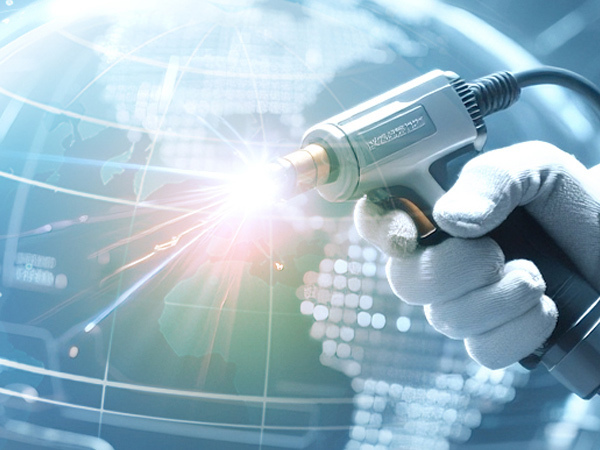As Industry 4.0 merges with advanced welding technology, a new wave of manufacturing efficiency is unfolding worldwide. Handheld laser welding has become one of the key enablers of smart and digital manufacturing, offering precision, flexibility, and sustainability. From automotive and aerospace to consumer electronics and new energy equipment, this technology is reshaping production lines and driving industries toward higher efficiency, intelligence, and environmental responsibility.
By 2025, the global handheld laser welding market has developed a clear regional structure: China leads in large-scale adoption and industrial integration, Europe and the United States focus on high-value, high-precision applications, while emerging markets such as Southeast Asia, Latin America, and the Middle East show the fastest growth potential.

Regional Market Landscape: Competition and Differentiation
Asia – Scaled Manufacturing and Rapid Adoption
China has become the global center of handheld laser welding production and consumption. Supported by favorable policies, cost efficiency, and a mature supply chain, adoption is accelerating across small and medium-sized enterprises. Meanwhile, Southeast Asian countries such as Vietnam and India are experiencing rising demand driven by industrial relocation and manufacturing upgrades, particularly in electronics and automotive parts. The Asian market, centered on China, is now the world's fastest-growing hub for handheld laser welding technology.
Europe & North America – Precision and Automation Focus
In Western markets, handheld laser welders are defined by high precision, high power, and strong automation capabilities, commonly applied in aerospace, automotive, and advanced fabrication sectors. Though adoption rates grow more moderately due to higher costs and technical barriers, environmental regulations and carbon reduction policies are accelerating the transition toward laser-based processes. Leading companies such as Trumpf and IPG Photonics are introducing AI-powered welding systems capable of real-time process monitoring and adaptive control—paving the way for smart welding ecosystems.

Emerging Regions – Infrastructure and OEM Growth
In Latin America, particularly Mexico and Brazil, automotive production has spurred demand for handheld welding in body repair and component joining. Across the Middle East and Africa, expanding infrastructure projects are creating opportunities for low-power, portable handheld laser welders, favored for their efficiency and adaptability in environments with limited power access.
Technology Trends: From Tools to Intelligent Ecosystems
1. AI-Driven Welding Intelligence
Next-generation handheld welders are increasingly equipped with vision recognition, adaptive control, and real-time AI analysis of weld seams and molten pools. These systems automatically optimize power, speed, and focus parameters—reducing defects and improving consistency. According to the International Federation of Robotics (IFR), over 4.28 million robots were operating in global factories in 2024, with a significant share dedicated to welding automation, underscoring the growing synergy between AI and laser processing.
2. Green Efficiency and Low-Carbon Innovation
Compared with traditional arc welding, handheld laser welding features lower energy consumption, smaller heat-affected zones, and zero fume emissions—making it a sustainable choice for carbon reduction goals. As global regulations such as the EU Carbon Border Adjustment Mechanism (CBAM) tighten, manufacturers are rapidly adopting energy-efficient laser welding to replace high-emission methods.
To support this shift, TEYU's handheld laser welding chillers ensure precise temperature control and stable laser performance, helping welding systems maintain peak efficiency while reducing energy loss and prolonging component lifespan—perfectly aligning with global green manufacturing trends.
3. System Integration and Smart Connectivity
Handheld laser welding is evolving beyond a standalone tool into a connected manufacturing node. Integrated with robotic arms, MES systems, and digital twin simulations, modern welding setups enable real-time monitoring, traceability, and predictive maintenance—forming an intelligent, collaborative welding ecosystem.
TEYU's intelligent chillers further complement this ecosystem with RS-485 communication, multi-alarm protection, and adaptive temperature modes—ensuring reliable cooling performance even in fully automated welding lines.







